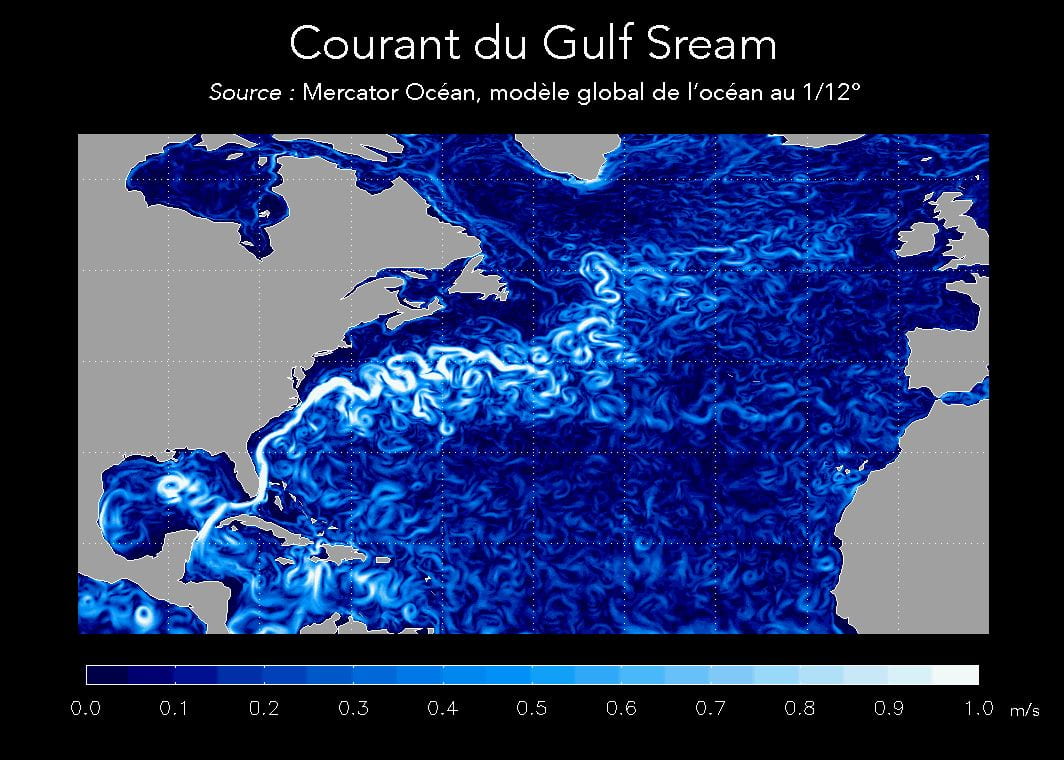By MOISES VELASQUEZ-MANOFF and JEREMY WHITE
The warming atmosphere is causing an arm of the powerful Gulf Stream to weaken, some scientists fear.
[…]
It’s one of the mightiest rivers you will never see, carrying some 30 times more water than all the world’s freshwater rivers combined. In the North Atlantic, one arm of the Gulf Stream breaks toward Iceland, transporting vast amounts of warmth far northward, by one estimate supplying Scandinavia with heat equivalent to 78,000 times its current energy use. Without this current — a heat pump on a planetary scale — scientists believe that great swaths of the world might look quite different.
Now, a spate of studies, including one published last week, suggests this northern portion of the Gulf Stream and the deep ocean currents it’s connected to may be slowing. Pushing the bounds of oceanography, scientists have slung necklace-like sensor arrays across the Atlantic to better understand the complex network of currents that the Gulf Stream belongs to, not only at the surface, but hundreds of feet deep.
“We’re all wishing it’s not true,” Peter de Menocal, a paleoceanographer and president and director of the Woods Hole Oceanographic Institution, said of the changing ocean currents. “Because if that happens, it’s just a monstrous change.”
Read full article: https://www.nytimes.com/interactive/2021/03/02/climate/atlantic-ocean-climate-change.html



